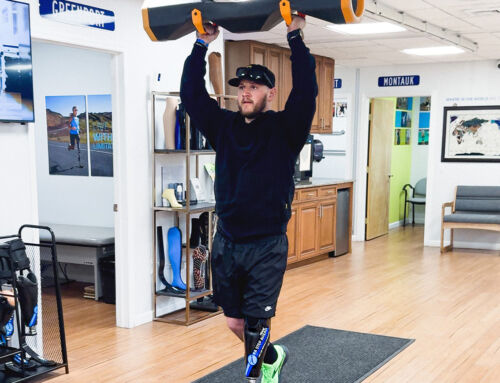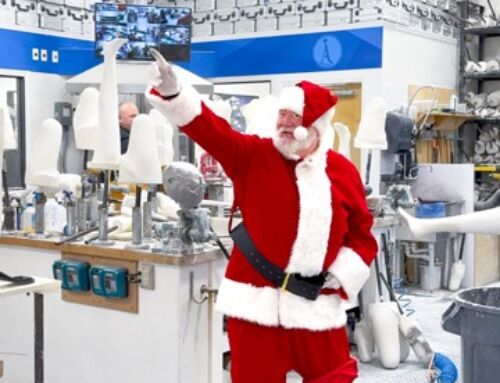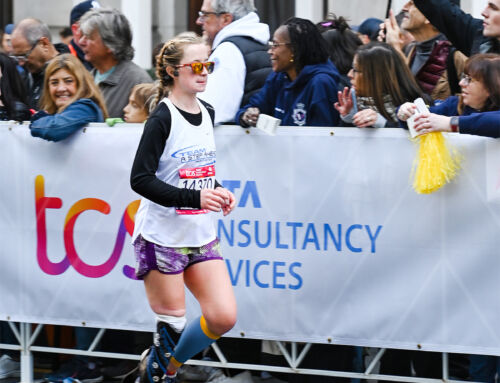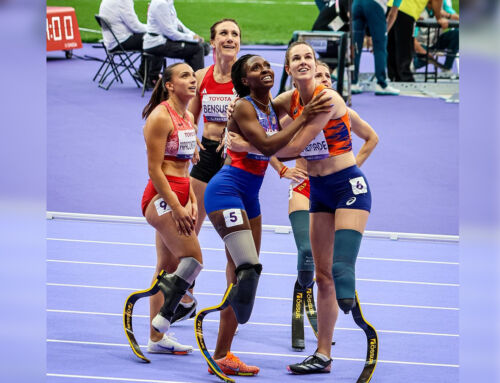If you haven’t heard of Sarah Reinertsen, she first made history in 2005 after becoming the first female amputee to complete one of the toughest endurance events in the world: The Ironman World Championship. She’s also a former Paralympian who has completed three other Ironmans, countless half Ironmans, and marathons, as well as the Emmy-award-winning CBS reality TV series, The Amazing Race.
She’s back at it again, this time becoming the first amputee (male or female) to complete the World Marathon Challenge—running seven half marathons on seven continents over seven days. Having done The Amazing Race, Sarah wasn’t concerned about how well her body could handle the insane amount of travel, lack of sleep, and irregularity of meals that come with competing in the World Marathon Challenge. “To that end, I definitely felt like I had an advantage,” Sarah says. “And I spent two years working up to this moment.”
Given her background as a triathlete, Sarah spent a lot of time biking during the week for some low-impact cardio and left the running for the weekends. “I’d double on my runs on the weekends—not running for distance—but making sure I got a couple hours in the morning and the evening.” She also turned to yoga on top of everything else a couple times a week to help her body heal, stretch, and relax.
“It was by far the hardest thing I’ve ever done,” she says. “I wanted to quit in Lisbon and thought about giving up, but knowing that I was running for a cause inspired me to keep going.”
The fact that she was suffering for a purpose made things a lot easier. “You’re lifting a light up and creating an opportunity for someone else,” Sarah says. “This challenge isn’t like the New York Marathon, where people are cheering for you. There are just 50 other people with you and you’re alone in the dead of night at times, so you need a purpose to keep on going.” Given her accomplishments, it’s hard to imagine that Sarah ever had difficulties running. But the truth is, she was told she’d never be able to run long-distance after she had her amputation.
Sarah was born with proximal femoral focal deficiency, a bone-growth disorder; her affected leg was amputated above the knee at age seven. Following the surgery and weeks of physical therapy, Sarah, who loved sports, returned to school and found herself at a disadvantage since her peers and teachers didn’t know how to include her, given her new disability. “I joined the town soccer league and the coach literally wouldn’t let me play because he just didn’t know what to do with me,” Sarah says.
Her parents refused to let her believe that her disability would hold her back. “My parents were athletes and avid runners so whenever they did 5 and 10Ks, they started signing me up to do the kids’ version, even though I’d often finish dead last,” Sarah says. “I’ve always loved running—but when I was at these races, either running or watching my dad from the sidelines, I never saw anyone like me, so at times it felt discouraging to always be the odd one out.”
That changed when Sarah met Paddy Rossbach, an amputee just like her who had lost her leg as a young girl in a life-altering accident. Sarah was 11 at the time at a 10K road race with her dad when she saw Paddy running with a prosthetic leg, fast and smooth, just like everyone else. “She became my role model in that moment,” Sarah said. “Watching her is what inspired me to get into fitness and not view my disability as hindering anymore. I knew that if she could do it, I could too.”
“I want to inspire anyone who has challenges in their lives, whether they’re visible like mine, or not. I’ve spent my life focusing on my adaptability rather than disability, and that’s something that’s served me well in every facet of my life.”




